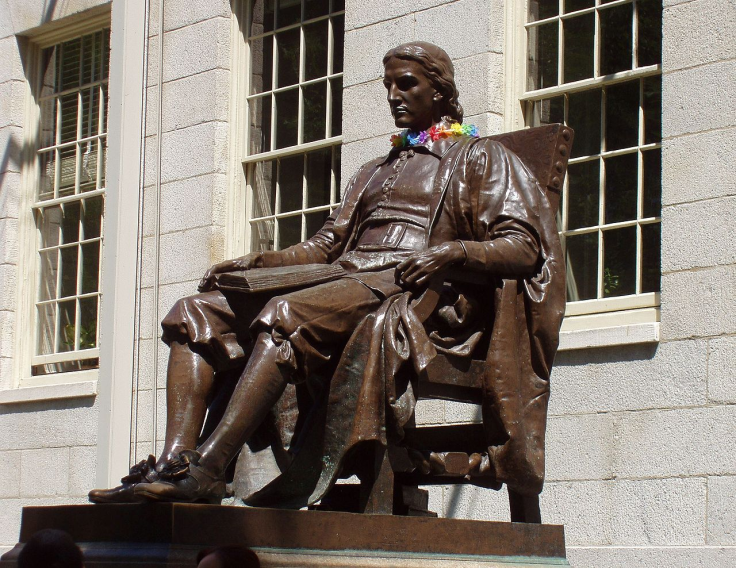Harvard University Faces Intense Scrutiny Amid Controversies Over Campus Antisemitism and Leadership Response
ByIn an era where higher education institutions are under intense public and political scrutiny, Harvard University has found itself at the center of a series of controversies.
From student protests and allegations of campus antisemitism to criticisms of its leadership and the role of external actors, Harvard's handling of these issues has sparked a nationwide debate.

The Initial Outrage: Pro-Palestine Protests and Immediate Backlash
In the wake of Hamas's attack on Israel on October 7, a letter signed by over 30 Harvard student groups ignited a firestorm of controversy. The letter blamed the Israeli regime for the ensuing violence, a stance that placed Harvard University at the epicenter of intense public and political scrutiny. The immediate backlash came from a variety of sources: the media, donors, conservative activists, and governmental entities, including the Education Department's Office for Civil Rights. Claudine Gay, Harvard's then-president, faced significant criticism, not only for her handling of the situation but also for allegations of campus antisemitism and accusations of plagiarism.
Gay's resignation in early January, following her contentious congressional testimony on campus antisemitism, further fueled criticism of Harvard's leadership. The university continued to face pressure, including a subpoena from House Republicans related to an ongoing antisemitism investigation and a series of high-profile resignations from advisory groups on countering antisemitism. Harvard's handling of these issues has been a point of contention among its prominent faculty members, including Steven Pinker and former president Lawrence Summers, who have publicly criticized the university's response to these controversies.
Faculty Dissension and the Call for Silence
The controversy took another turn on June 15, when Lawrence D. Bobo, dean of Harvard's Division of Social Science, called for faculty to cease airing grievances publicly. Writing in the Harvard Crimson, Bobo criticized the public denunciations by faculty members, including those from prominent affiliates and former university presidents. He posed two critical questions regarding the acceptability of faculty members publicly criticizing university leadership to incite external intervention and answered affirmatively, suggesting such actions were sanctionable violations of professional conduct.
Bobo's call for silence backfired spectacularly. Instead of quelling dissent, his op-ed attracted even more criticism of both himself and Harvard. The media quickly picked up on the controversy, with articles and opinion pieces in major outlets such as The Atlantic and The Chronicle of Higher Education denouncing Bobo's stance. Critics argued that Bobo's call to muzzle faculty members was an attack on academic freedom and free speech, core values of higher education institutions.
The Broader Debate: External Interventions and Academic Freedom
The debate over external intervention in university affairs is not new but has gained renewed intensity in the current climate. The Princeton Principles for a Campus Culture of Free Inquiry, released by Princeton University's conservative James Madison Program, explicitly open the door to outside intervention to defend free inquiry when internal mechanisms fail. These principles argue that trustees, regents, alumni, and other external stakeholders have a role in ensuring that universities uphold the values of free speech and academic freedom.
This perspective contrasts sharply with the stance of organizations like the American Association of University Professors (AAUP), which strongly resists external interference in university governance. The AAUP maintains that academic matters should primarily be managed by the faculty, administration, and governing boards of the institutions themselves. They argue that external influences, especially from donors or alumni with potentially conflicting interests, could undermine the educational mission of the university.
Lawrence Summers, a former Harvard president, highlighted the complexity of the issue, noting that while donors have historically influenced university policy through their funding, any external efforts to purge specific ideas are inherently problematic. Summers emphasized that the autonomy of universities is crucial for their role in serving the broader community and upholding the principles of free inquiry and academic freedom.
Harvard University's recent controversies reflect broader challenges facing higher education institutions in the United States. As universities grapple with issues of free speech, academic freedom, and external intervention, they must navigate a delicate balance. The intense scrutiny of Harvard underscores the need for transparent and principled leadership that can uphold the institution's core values while addressing the concerns of its diverse stakeholders. Moving forward, Harvard and similar institutions must find ways to foster a culture of open dialogue and mutual respect, ensuring that they remain bastions of free inquiry and academic excellence amidst an increasingly polarized landscape.
© 2025 University Herald, All rights reserved. Do not reproduce without permission.








